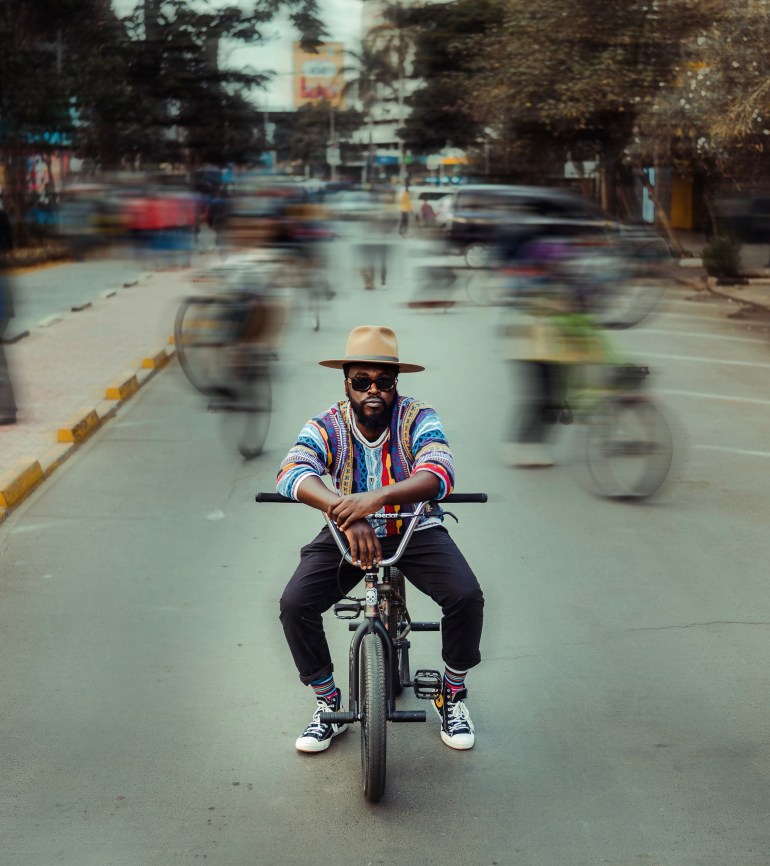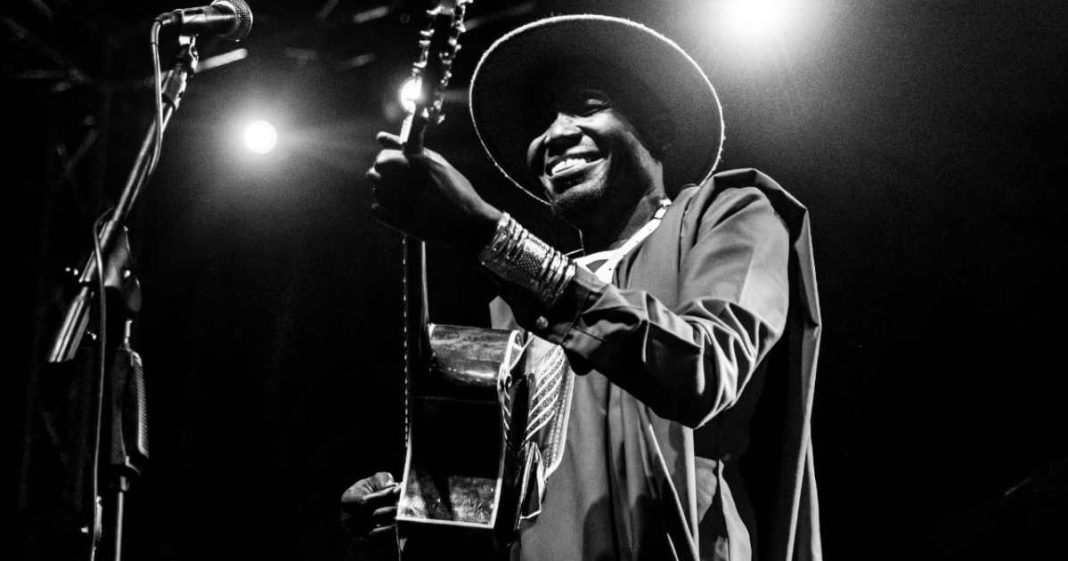Nairobi, Kenya – In November 2023 when the Grammy Awards announced five inaugural nominees for the Best African Music Performance category, only South Africa and Nigeria were represented. The news sparked a debate about the continuing trend of contemporary music from both countries – Amapiano and Afrobeats – dominating the continent of 54 countries.
This was especially so in Kenya. The East African nation is one of the continent’s cultural heavyweights and so often a leader in many other sectors. Yet, in most parts of Africa and the world, dance floors and airwaves are devoid of Kenyan music.
Some of the best-known names today like boy band Sauti Sol have achieved some level of crossover across the continent and clinched Grammys off of their work with their Nigerian and South African counterparts. But their fame and appeal still lag behind that of their counterparts.
Even within Kenya, Amapiano and Afrobeats enjoy frequent airplay. Bongo Flava, a genre from nearby Tanzania, is also quite popular, perhaps in part because the songs are in Swahili, the main language in both countries.
When Universal Music Group (UMG) announced the launch of Def Jam Africa in 2020, the label announced locations in Nigeria and South Africa, but promised to sign music from all over the continent. Other big record companies like Warner Music and Sony Music have also set up shop in both countries. While some of the artists signed do come from outside of those music hubs, Kenyans have yet to break in.
To Tabu Osusa, a Nairobi-based author, music producer and record label executive, the reason for Kenya’s absence on the continental centre stage is clear.
“Kenyan music has no identity,” he told Al Jazeera.
Identity, according to Osusa, is a sound but also a generational lineage; groups of melodies, turns of phrase, and rhythms that flow from one year to the next. Afrobeats and Amapiano have these and are distinctively African, he adds. By comparison, there is no existing equivalent in Kenya.

A shrinking identity
Kenyan music used to be characterised by the distinct plucking sound of a guitar, strummed to imitate a traditional eight-string lyre. When it was heard, everyone could tell what it was: Benga music. Derived from the Luo word for beauty, Benga took hold of Kenya in the 50s to 60s and spread across the continent during the 70s.
Musicians transferred the sounds of traditional Western Kenyan songs to the guitar, creating the distinct pluck, pluck, plucking sound Benga is known for.
Osusa blames colonialism for the genre’s disappearance.
“When we gained our independence [in 1963], our fathers left everything in the village,” he said, referring to a migration to urban areas in the 1970s. “Our culture, our food, our sense of dress, our music. They moved to town to start afresh, and if anyone brought anything from the village they were labelled as mshamba – meaning from the village.”
“I don’t know why we didn’t move our culture to the cities,” said Osusa. “Nigerians did, and that’s why they’ve been able to make village life funky and sexy [through their music]. The Nigerian musicians always appreciated those who were before them – so there’s that continuity from the days of the Juju music to Afrobeats.”
Bill Odidi, a music writer for Business Daily Africa and radio presenter for Music Time in Africa, agrees with Osusa’s hypothesis. Kenyans lost their musical traditions and with that, their chances of entering the mainstream, he says.
But he also believes the political and economic situation in the early days of post-independence Kenya didn’t “allow for music to thrive”.
“Indigenous culture was really suppressed by the settler community,” said Odidi. “The guys who came into power after independence just carried on with the same sort of policies. They admired the Western and the British way of life [more] than they did their own.”
Stuck in a loop
Colonialism isn’t the only thing holding Kenyan musicians back – according to Kenyan musicians.
One problem is the apprehension to define music as a career.
“A lot of artists are hesitant to go into music full time,” said Maya Amolo, a Kenyan R&B singer recognised as one of Spotify’s Fresh Finds Africa artists in 2022. “The issue is that we’re just not developed as an industry. South Africa and Nigeria, they’ve been building and evolving their music industry for a very long time and we have not. Without a functioning industry with some form of structure, you’re not going to make any money.”
This creates an inevitable loop: the industry is underdeveloped because people don’t pursue art full-time. People don’t pursue art full-time because the industry is underdeveloped.
“Blinky” Bill Sellanga, frontman of Kenyan alternative group Just a Band believes Kenyan fans and the local music industry need to do more for the artistes.
“We haven’t rallied behind Kenyan music,” said Sellanga. “The mic traditionally hasn’t been given to us. Nigeria and South Africa, even the Congo have had a music industry for so long. They’ve been able to really hone their sound, and they stand behind their sound. Kenyan DJs push Afrobeats and Amapiano. Nigerian DJs aren’t doing the same for us.”
The artists cite additional reasons for East Africa’s inability to break out on the mainstream: compared with Nigerians, fewer Kenyans want to leave the country (45 percent versus 19 percent according to the Pew Research Center) leading to less of an exportation of Kenyan culture.
Studios in Kenya are underfunded, and the production quality can, at times, be years behind other African countries. Some say the Kenyan music scene is defined by chasing the success of Nigeria and South Africa.
Sellanga believes that despite this, the lack of a unifying sound is what makes Kenya a great place to grow and learn as an artist.
“Kenyan music is more regional, for sure,” said Sellanga. “The Kenyan sound that is around varies from place to place. The beauty of these differences is what makes us special. Just A Band couldn’t have existed in any other country in Africa.”

‘They want to listen’
To rediscover the Kenyan sound and get people to listen, some artists are constantly working to prioritise their culture.
Shipton Onyango, who goes by his stage name Winyo, has been a Benga artist for more than 15 years. “I want to put an emphasis on Benga music, only make it fresh and new to a global market that can identify with it,” said the singer who works with Osusa’s Ketebul Music.
While Winyo agrees with much of Osusa’s hypothesis, he also concurs with some of his peers that the effort to bring Kenyan music to the main stage needs to focus less on a revival of the past and more on the sounds of the present.
Some of the new music being made is Benga, some of it isn’t. But not enough people are listening yet.
“People want to know what Kenyan sound is and how to work with it,” said Winyo. “I think a lot of musicians in the industry have gone back to the drawing board. They want to know what Kenyan sound is. You would be shocked to find out a lot of Kenyans like Kenyan music. They want to listen to it. There is a market out there.”







